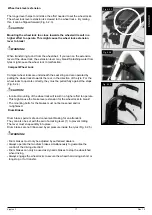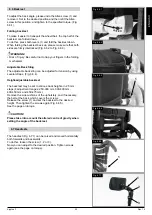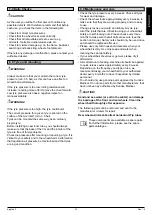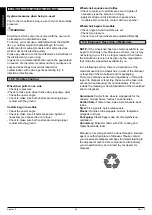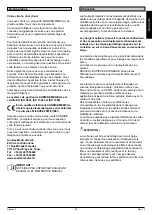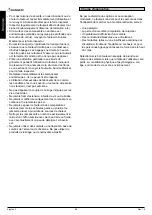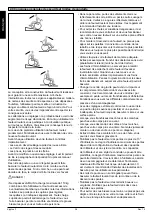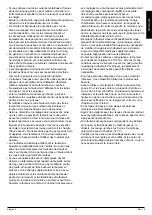
ENGLISH
24
Krypton F
Rev.1.0
6.8 Wheel Alignment
Adjusting the wheel alignment
NOTE
: To achieve the very best movement, the rear wheels must be
adjusted to their optimum position, which means correctly adjusting
the wheel alignment. To do this, measure the distance between both
wheels front and rear to ensure that they are parallel to one another.
The difference between both measurements should not exceed 5
mm. The parallel setting can be adjusted by loosening the screws (1)
and rotating the axle adapter (3).
When finished, make sure that all screws have been properly
tightened, (Fig. 6.8.1 to Fig. 6.8.2). Re-tighten the Allen screws with a
torque of 8 Nm.
WARNING!
Be careful, there is a risk of tipping when adjusting the centre of
gravity of the seat!
Adjusting the rear wheelbase width
The rear wheelbase is defined as the distance between the upper
side of the rear wheels and the backrest tubes and is factory set (125
mm). This must be increased if more space is to be created between
the tyres and the optional height-adjustable armrests.
To adjust the rear wheelbase:
• Move the camber adapter (3) telescopically into or out of the axle
adapter (2).
• Undo the Allen screw (1) on the rear of the axle adapter.
• Move the axle adapter (3) in or out, until the desired wheelbase is
achieved.
• To tighten the Allen screw (1) again, follow these two steps:
a) Tighten both Allen screws with a torque of 5 Nm.
b) Tighten both Allen screws again, with a torque of 8 Nm.
• Repeat the procedure on the right side of the wheelchair and set
the same gap on the left side (Fig. 6.8.1 to 6.8.2).
CAUTION!
• When adjusting the rear wheelbase, set first one wheel and then
the other.
• If the camber adapter has been moved or twisted when adjusting
the seat height, the wheel alignment must be checked and adjusted
if necessary (see the “Wheel alignment” section).
• When replacing the Allen screws (1) on the axle adapter, you
MUST use Loctite™ 243 for thread locking.
Fig. 37
Fig. 6.8.2
1
3
2
Fig. 30
Fig. 6.8.1
2








